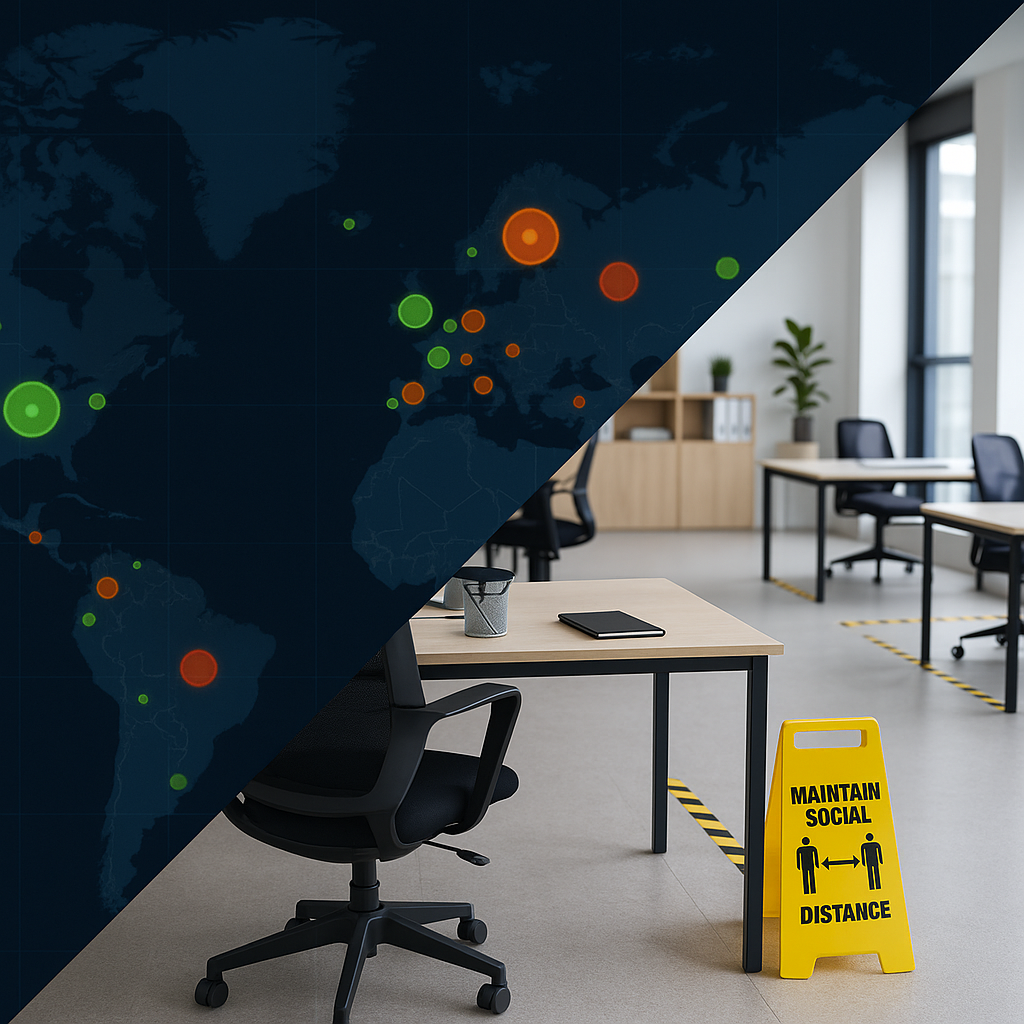Practice Over Prediction: How Resilience Really Works
Resilience is often mistaken for foresight; the ability to see disruption coming, to prepare for the exact shape of a future event. But the truth is, the strongest organizations rarely “see it coming.” What sets them apart isn’t what they predict. It’s how they practice.
Beyond the Crisis Commander: Shared Ownership in Resilient Organizations
When disruption strikes, organizations look for someone to steady the wheel. Most have a few people who naturally step forward; the ones who bring clarity when everything feels uncertain. They are the anchors, the decision-makers, the calm voices in the noise.
But when resilience depends on those few, it becomes temporary. A single leader can inspire confidence, yet that confidence fades when the leader steps away. True resilience is not a reflection of one person’s strength, it is a reflection of what remains when that person is gone.
The most resilient organizations don’t build around command, they build around stewardship.
The Silence After the Storm
When a crisis ends, what follows is often a strangely uncomfortable quiet. The adrenaline fades, the urgency dissolves, and what remains is fatigue. This is not the time for a sigh of relief and then a return to what passes for normal, it is a signal to keep focus. It marks the moment when leaders can turn reaction into reflection and recovery into readiness.
Resilience in the Everyday
When people think about resilience, their minds often go straight to major crises: hurricanes, cyberattacks, pandemics. These are real and consequential, but they are not the only tests of resilience. Every organization experiences small disruptions: an unexpected absence, a system outage, a delayed shipment. Even this minor disruptions can create ripple effects across operations. These moments rarely make headlines, yet they reveal just as much about an organization’s capacity to adapt.
The Muscle Memory of Organizations
When an athlete steps onto the field, a pilot pulls back on the yoke, or a musician takes the stage, they aren’t relying on a manual. They are relying on muscle memory, the ingrained responses built through practice, rehearsal, and repetition. In the same way, organizations under stress can’t afford to flip through binders or scroll through PDFs. Their response must already live in their people.
Decision Fatigue in Crisis
Crises don’t just test systems, they test people.
Every decision in a high-pressure environment comes with weight. Leaders know that a single call can affect safety, reputation, or survival. Under that strain, decision-making shifts from being a strength to being a liability. Fatigue sets in. Options blur. Risk becomes harder to gauge.
This is the hidden cost of crisis leadership. It’s not only the external disruption that wears organizations down, but also the internal erosion of judgment when leaders are forced to decide and decide and decide again.
Cause-agnostic resilience: Why impacts matter more than causes
Organizations often respond to disruption by fixating on the cause: a new security threat, a natural disaster, a pandemic, or social unrest. Leaders rush to ask: What if this happens again? How do we prevent it?
But in doing so, they can miss the deeper truth: while causes may differ, their effects often repeat in predictable ways. And resilience lives in responding effectively to those effects.
Cyber Resilience means protecting more than systems
When ransomware makes headlines, the focus is usually on the scale of disruption or the financial losses. But behind every crisis response are people: the security analysts, IT teams, and incident responders who absorb the brunt of the pressure. And increasingly, the human cost of cyber disruption is becoming one of the most critical, yet overlooked, dimensions of resilience.
Resilience in the shadow of a security surge: Lessons from Washington, D.C.
Amid the federal law enforcement and the National Guard surge into Washington, D.C., the headlines are focused on politics, safety, and immediate risks. But beneath the surface, these moments reveal something deeper about organizational and community resilience. All of Washington, D.C. is now navigating a transformation of its physical and psychological environment, and the lessons extend far beyond the capital.
Hidden climate cascades: Why the greatest supply chain risks are the ones you don’t see
When a hurricane strikes a port city or a wildfire threatens a logistics hub, the supply chain disruption is obvious, immediate, and visible. But increasingly, the most dangerous risks are the ones organizations don’t see coming: hidden climate cascades.
Leading through the perfect storm: Why resilience is now the defining metric
Global leaders are navigating what some are calling a perfect storm, a convergence of crises that test not just operational capability but the very culture and cohesion of their organizations. Climate instability, rapid AI disruption, geopolitical conflict, and economic volatility are no longer sequential challenges; they are simultaneous, compounding forces.
Case study in adaptive strategy: Supporting global organizations through COVID-19
The COVID-19 pandemic was not just a health crisis, it was a multi-layered operational disruption that tested the resilience of organizations worldwide. Over the course of the initial outbreak and through the waves that followed, I had the opportunity to support more than half a dozen global organizations, each with distinct footprints, missions, and risk profiles. The scale and diversity of needs made this both one of the most demanding and most illuminating periods of my professional practice.
Unplanned exits, unready teams: Why leadership continuity is a resilience imperative
In the last year alone, CEO turnover reached historic highs across the S&P 500. Leadership changes are surging, driven by burnout, activist pressure, and shifting board expectations. But while headlines focus on who’s leaving, the real story is who (and what) comes next.
When senior leaders exit without warning or preparation, the disruption isn’t just internal. It ripples through markets, erodes trust, and exposes operational gaps that even the best crisis plans can’t patch in real time.
Strategic fragility: rethinking supply chains as risk infrastructure
In boardrooms, supply chains are often discussed as cost centers, efficiency engines, or procurement puzzles. But in a world where geopolitical tension, trade weaponization, and component scarcity can halt operations overnight, supply chains must be understood for what they truly are: infrastructure. And like any infrastructure, they need to be resilient by design.
When infrastructure fails: Lessons from power outages and cyberattacks in Europe
When power systems failed across Spain and Portugal, and a major cyberattack disrupted retail operations in the UK, the headlines focused on outages, service delays, and economic impact. But behind the noise was something quieter, and more consequential: a wide-ranging test of resilience across borders and affecting multiple sectors.
Case study in crisis leadership: Responding to tragedy overseas
In crisis work, there are few situations more complex or emotionally charged than a tragic loss of life. One organization I supported experienced just such an event: a devastating overseas accident that resulted in multiple fatalities and serious injuries, affecting all but two members of the country team. The moment called not only for decisive action, but for an extraordinary level of coordination, care, and clarity under pressure.
Building resilience isn’t just BCP
In today’s dynamic global environment, it's easy to conflate resilience with business continuity planning (BCP). After all, both aim to protect the organization and sustain operations under stress. But true resilience is far more than documented procedures and backup systems. It's a living capability rooted in culture, leadership, and adaptability.
Resilience is not recovery: Why return to normal isn’t enough
Organizations that treat crisis response as a path back to normalcy risk missing the full potential of resilience. Recovery gets systems back online. Resilience asks: what can we learn, adapt, and strengthen so we're better positioned next time?
From response to advantage: Turning crisis into strategic gain
Most organizations view crisis response as a defensive maneuver—mitigating damage, restoring function, managing reputation. But resilient organizations go further. They use disruption as a proving ground for innovation, alignment, and momentum. In short, they turn response into advantage.
Why simulations reveal more than plans
Many organizations are confident in their crisis and continuity plans—until the moment they need to use them. That’s when reality reveals what the binder missed. The better test of resilience isn’t how complete your documentation is. It’s how your team responds under pressure. That’s where simulations come in.



















